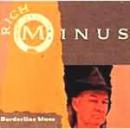We have traveled hard and far
and I am not sure were we are
our captain says we are close to San Antone
From the town of Saltillo
we moved North, to Alamo
and weeks have passed since I have seen my home
Of Santa Ana's army I am part of
and Mexico the country that I love
Now them rebels I don't hate
I will do my duty straight
and pray to return soon, if God be served
Santa Ana moves us fast
for the horses, not much grass
the winter 's cold
marsh and muddy grounds we crossed
but he says will give us land
perhaps all will be worth it, in the end
Of politics I know not much at all
I only march to honor duty's call
To them rebels I don't hate
I still do my duty straight
I pray to return soon, if God be served
pray to return soon, if God be served
and I am not sure were we are
our captain says we are close to San Antone
From the town of Saltillo
we moved North, to Alamo
and weeks have passed since I have seen my home
Of Santa Ana's army I am part of
and Mexico the country that I love
Now them rebels I don't hate
I will do my duty straight
and pray to return soon, if God be served
Santa Ana moves us fast
for the horses, not much grass
the winter 's cold
marsh and muddy grounds we crossed
but he says will give us land
perhaps all will be worth it, in the end
Of politics I know not much at all
I only march to honor duty's call
To them rebels I don't hate
I still do my duty straight
I pray to return soon, if God be served
pray to return soon, if God be served
Contributed by Piersante Sestini - 2016/5/17 - 23:55
×
![]()
Note for non-Italian users: Sorry, though the interface of this website is translated into English, most commentaries and biographies are in Italian and/or in other languages like French, German, Spanish, Russian etc.





Il fante dell'esercito di Santa Ana è un soldato messicano coscritto nelle milizie di Antonio de Padua María Severino López de Santa Anna y Pérez de Lebrón (noto come Santa Ana o Santana), feroce generale e più volte presidente del Messico nei primi decenni della sua indipendenza. La canzone è ambientata attorno al 1830, quando Santa Ana guidò una milizia per tentare sedare la rivolta indipendentista del Texas. L'esercito, formato di coscritti spesso a forza, indios ed ex carcerati era molto numeroso ma male equipaggiato, con uniformi troppo leggere per l'inverno texano e scarsità di cibo e rifornimenti. Nonostante alcune feroci stragi, fra cui quella successiva all'assedio della missione francescana di Alamo, nei pressi di San Antonio, alla fine i messicani furono sconfitti ed il Texas ottenne l'indipendenza, finendo poi per unirsi agli Stati Uniti. La canzone racconta l'indifferenza del soldato per la ribellione, la scarsa volontà di combattere ed il desiderio di tornare a casa quanto prima.